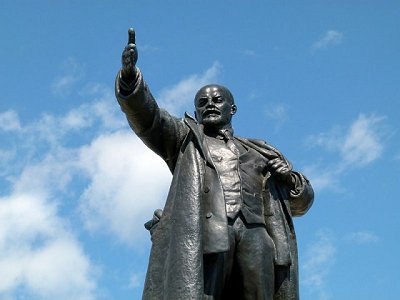
FALLING DOWN
Do present sins invalidate previous service for God?
The warning, ‘if you think you are standing, watch out that you do not fall’ (1 Cor. 10:12), following hot on the heels of the Apostle Paul’s confession, ‘I punish my body and enslave it, so that after proclaiming to others I myself should not be disqualified’ (1 Cor. 9:27) informs us of the real risks of failure in following Christ. Rather like the small print at the bottom of a consumer contract, people tend to ignore it on the assumption it won’t apply to them, but the world is littered with examples of where it did.
It is part of our duty as disciples to ensure this does not happen: to pray, to avoid temptation, to remain accountable to other Christians, but what happens when someone else sets out to undermine your faith, to pull it apart brick by brick until there is only a ruin for others to stare at? This trauma lies at the heart of a beautifully written history by journalist Oliver Bullough entitled The Last Man in Russia; and the struggle to save a dying nation (Penguin, 2014). Part travelogue, part ethical reflection, Bullough spends great effort uncovering the story of Father Dmitry Dudko, a Russian Orthodox Priest and one of the country’s bravest dissidents during the Communist era.
Having turned to Christ after finding a copy of the Bible when all the churches around him were closed, Dudko trained for the priesthood but was jailed in the Gulag for nearly nine years after writing a poem critical of Stalin. Upon release, he set about rebuilding his vocation in a Church populated by informers and became a leading figure of the Brezhnev era dissident movement. Russians – believers, agnostics, atheists - would gather round him to debate the ethical challenges of living in a bankrupt and soulless system and how to cope with the symptoms it induced, like chronic alcoholism. The forum Fr. Dmitry afforded ordinary people was a fresh expression of church in its time and culture, adapting to the realities of how people had to live and shaping church to meet new needs.
When Dudko was arrested a second time in 1980, as part of a wider crackdown on the burgeoning dissident movement, his supporters assumed he would resist the KGB again. They were wrong. Having learned from the limitations of using hard, physical force against strong-willed people, his interrogators played on his sense of patriotism, the idea that his teaching was undermining Russia (rather than the Soviet Communist Party).
Bullough spends great physical and mental effort in trying to understand the fear of imprisonment that Dudko’s first spell in the Gulag may have induced in him – evidence of the author’s deeply sympathetic spirit – but the voluntary confession of Fr. Dmitry on prime time Russian TV on June 20, 1980 destroyed not just his reputation and the relationships he had built up in faith and trust over decades, but seemingly the very essence of the man himself. On release from prison, Dudko sought to justify himself endlessly and pursued a different kind of ministry, tainted by antisemitism and uncritical Russian nationalism.
What went wrong? And did his recantation invalidate all he had done before? These are questions Bullough ponders at length. He finds he loses sympathy, that a man who had preached against the Russian persecution of minorities could learn the old hatreds of antisemitism with a little encouragement from the KGB.
Cleverly broken by his interrogators, Dudko would spend the rest of his ministry in quiescent collusion with the Soviet state. The quest to eliminate the pernicious effects of alcohol among his parishioners would continue, but the wider challenge to a godless government was lost.
Those of us with the freedom to express what we believe are not well placed to make judgment of those who aren’t. We know how we would like to react, were we interrogated by spiteful authorities, but we cannot say so with certainty. Our duty is to pray for those who this day must make that choice. There are many ways to break someone’s will, but the appeal to patriotism is an especially powerful one for those who love their country. Understanding when fidelity to nation must give way to loyalty to God is essential, but a boundary line that can feel blurred when you are deprived of sleep and afraid for your family. Little wonder that the call to pray for persecuted Christians is primary.
It is not for us to judge how much of Fr. Dmitry’s earlier ministry was disqualified by his recantation. If present sins were to invalidate previous ministry, most of us would lose heart and little of our endeavours would find a place in the world to come. Dudko’s service altered lives for good, but it poisoned many of them when he changed sides. Suddenly St. Paul’s words make perfect sense.
POPULAR ARTICLES

Obama's Covert Wars
The use of drones is going to change warfare out of all recognition in the next decades.

Through A Glass Starkly
Images of traumatic incidents caught on mobile phone can be put to remarkable effect.

What Are British Values?
Is there a British identity and if so, what has shaped the values and institutions that form it?


